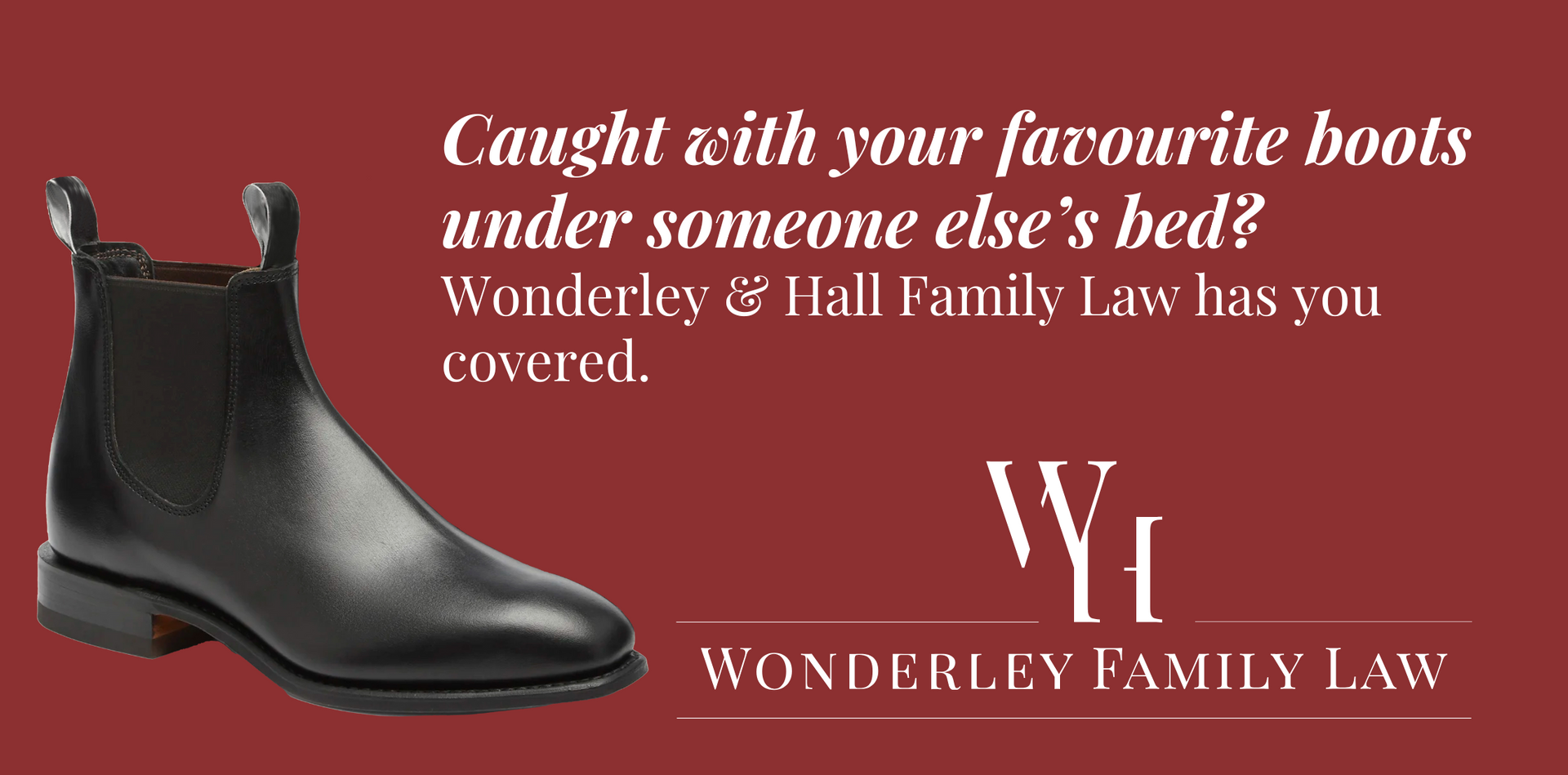Advocating for your safety in Domestic Violence proceedings.
Domestic Violence
Domestic violence is often inextricably linked to the family law matters we deal with at Wonderley Family Law. We understand the importance of addressing domestic violence and providing support to those affected. We recommend consulting our experienced domestic violence lawyers before pursuing a domestic violence order, as they can guide you through the process.
If you are facing a domestic violence order, our dedicated domestic violence lawyers are here to assist you. We will ensure you fully comprehend your available options, empowering you to make the best decision for your specific circumstances. These options may include consenting to an order without admission or contesting the order in court.
Frequently Asked Questions
Violence of any kind is an incredibly scary period of someones life. Here are some frequently asked questions our clients often ask us regarding Domestic Violence:
-
What is domestic violence?
Domestic violence covers a broad range of behaviours which , at their core, controls or dominates another person by causing fear for their safety or wellbeing. It can happen in intimate relationships such as between a husband and wife, it can be directed at children and it can also be directed at people who may rely on the abuser such as an elderly parent.
While domestic violence is usually a pattern of behaviour, a single incident can also be considered domestic violence.
Behaviours which constitute domestic violence may include:-
- Threatening Behaviour can be threats directed towards the other person but it can also include threats directed towards other family members and even pets. Threatening behaviour also includes things like threats of suicide or self-harm.
- Stalking – this can include repeated phone calls, text and other messages, unwanted gifts, following the victim, attempting to contact the victim using third parties such as friends or relatives, social media posts, notes and mail and showing up at their place of work or other places they frequent.
- Physical Abuse includes both violence and threats of violence against a person as well as against their property, including pets and livestock. Examples include hitting, slapping, punching or kicking the person as well as things like punching holes in walls.
- Emotional abuse covers a broad range of behaviours and can include things like name calling, putting the victim down, insulting them, limiting the victim’s contact with family and friends, gaslighting, racial abuse, controlling what the victim wears and lying to other people about the victim.
- Coercive Behaviour is usually a pattern of behaviour, including physical violence, humiliation and emotional abuse which wears down the victim’s sense of identity and self. Coercive control includes many of the other aspects of domestic violence such as financial and emotional abuse.
- Sexual Abuse includes rape, sexual assault in all forms and threats of violence against the victim or other people such as the victim’s children. Sexual abuse also includes pressuring or requiring the victim to engage in sexual acts when they do not want to.
- Financial Abuse includes things like controlling household spending, only giving the victim a set allowance to provide for themselves and/or their children, making large financial decisions without the input of the victim, preventing the victim from accessing bank accounts, forcing the victim to take out debt in their name or to guarantee a debt of the offender.
It also includes behaviours which prevent the victim from having or keeping a job and being able to provide for themselves or which make it difficult for the victim to study and obtain qualifications which would make it easier for them to find employment or to earn a higher income.
-
I’ve never hit my partner or even yelled at them. How can they say I've committed domestic violence?
Domestic violence can be about more than just physical violence. It includes things like financial control, controlling or isolating behaviour, damaging property, emotional abuse and stalking or harassing behaviour. This behaviour can be directed at a partner or at someone else such as a child.
We will be able to help you understand whether behaviour set out in an application falls under the umbrella of domestic violence.
-
I would never hurt my kids. How can I get them taken off a domestic violence order?
If you do not believe the children need to be named as protected persons in a domestic violence order, you have a couple of options.
You can negotiate the conditions and/or removing one or more named persons, including children, with either the police or the applicant or their solicitor. Applications are often adjourned on the first return date to allow the parties to negotiate whether an order could or should be made and, if so, on what terms the order should be made. Even if the children are named as protected persons in the domestic violence order, it doesn’t necessarily mean that you will not be able to continue to spend time with them under agreed family law parenting arrangements. Your family lawyer will be able to assist you in negotiating terms and help you understand what you can and cannot do under the order.
If the application filed us a private application rather than an application filed by the police then you may be able to negotiate an undertaking with the person who applied for the domestic violence order in return for them withdrawing the application.
A more time consuming (and usually more expensive) option is to contest the application. This means that you will need to go to trial and provide evidence about why the order should not be granted on the terms requested by the applicant.
Your family lawyer will be able to explain the risks and benefits of both options so that you can make an informed decision about the best way to proceed.
-
What happens if I breach a DV order?
If you are accused of breaching a domestic violence order, the police will investigate. If the police believe that you have breached a provision of the domestic violence order then you will be arrested and charged. You will then need to go to Court, either for trial if you intend to plead not guilty to the allegation/s or sentencing where you have breached a Court Order. Depending on the severity of the breach as well as the history of any prior breaches and various other factors, penalties can range from a fine all the way up to jail time. The Court may also choose to order you to participate in an approved intervention program.
While having a domestic violence order made against you is not a criminal matter and will not show on a police check, breaching a domestic violence order is a criminal matter.
You should speak to your domestic violence lawyer as soon as you become aware of a police investigation against you in relation to a breach of a domestic violence order.
-
My ex asked to me to come over, can I go even if we have a DV order in place?
If seeing your ex (or any other person) in person is prohibited under a domestic violence order, you must not go anywhere near them. It does not matter if you have been invited over, it will still be considered a breach and you can be charged.
-
Is showing up at my work considered domestic violence?
This depends on various factors, however, it can be considered domestic violence. Some of the factors which will be considered include whether they have a legitimate reason to be there, whether they could have gone to another place and their behaviour while there.
-
Can I reapply or apply to extend a protection order even if my ex hasn’t contacted me in several years?
You can always apply for an extension, however, it is unlikely to be granted if there is no ongoing risk to your safety or wellbeing.
-
How do I vary the conditions of an order if they are too strict?
If an order is not yet in place, you can negotiate an undertaking, negotiate the conditions being sought under the order or contest the application altogether.
Where a domestic violence order is in place you will need to apply to the Court for the order to be varied. Anyone who is named in the order can apply to change parts of the order.
-
What does it mean to consent without admissions?
If you disagree with the allegations made in an application for a domestic violence order but do not object to the conditions being sought you can agree to comply with the conditions without admitting to any of the allegations. This can be a way to move forward quickly and relatively inexpensively, however, you should speak to us first to ensure there are no unintended consequences.
-
Will I lose my weapons licence if a domestic violence order is made against me?
Yes. Where a temporary protection order is in place against you, your weapons licence will only be suspended. If a final order is made against you then your weapons licence will be revoked.
If you have access to firearms as part of your employment, your employer must ensure that you are not able to access them for the duration of the order.
You may reapply for a weapons licence once 5 years have passed from the date the order was made.
-
Can a DV order impact my Blue Card?
Having a domestic violence order made against you does not automatically disqualify you from obtaining a Blue Card, however, it will be a factor in the decision making process. Factors such as the nature of the domestic violence, the conditions imposed by the order, your compliance or otherwise with the order, etc will all be considered.
If you are an existing Blue Card holder, you are not required to notify Blue Card Services that an order has been made against you. You may need to disclose upon renewal of your Blue Card.
-
Can a DV order impact my NDIS or Disability Worker Screening Card?
You are not automatically restricted from being able to hold a worker screening card. The domestic violence order must be disclosed and will be considered in conjunction with the rest of your application.
-
Will having a DV order against me stop me seeing my kids?
While this doesn’t usually happen, it will depend on your parenting orders or parenting agreement, the terms of the domestic violence order and whether the children are named in the order as protected persons.
If there are family law orders in place, the existence of these orders along with the terms and conditions set out in them must be disclosed to the magistrate who is assessing the domestic violence application. The magistrate will take the existing orders into account when making their decision.
-
Should I use a communication app if I need to talk to my ex about the kids?
Unless specifically ordered, a communication app is not a requirement, however, they can be very useful for both parties. These apps keep a clear record of all communications, many can include other parties such as people who provide child care, medical providers, schools and teachers and other service providers and some even include functions which alert users if the tone of their messages might be considered aggressive or uncooperative.
-
Who can be named as a protected person?
A protected person under a domestic violence order can include anyone who has a relevant relationship with the aggrieved. This includes children, new partners and their children, extended family and other associates of the aggrieved.
To be named in a domestic violence order, a person must have either been exposed to or had acts of domestic violence directed towards them by the respondent. The Court must be satisfied that naming a person in a domestic violence order is necessary or desirable to protect them from domestic violence.
-
Can my children give a statement to support my submission?
As a general rule, children should be kept out of adult matters wherever possible. Section 148 of the Domestic And Family Violence Protection Act 2012 provides that the Court must grant leave before a child can provide evidence. The child must be at least 12 years old, be represented by an independent lawyer and they must agree to provide evidence.
-
How long does it take for the Court to make an order?
This depends on a host of factors, including how prepared the applicant and respondent are in hearings, whether additional information is required, the case load in front of the magistrate, etc. Your lawyer will be able to let you know the current timeframes that apply.
-
Do I have to go to court if my ex has applied for an order against me?
No. However, if you do not attend Court an order might be made against you in default of your appearance. The Court can do this if there is evidence you have been served with the application. By not attending, you lose the option to negotiate the terms and conditions of the order.
-
What is the difference between a police protection notice, a temporary domestic violence order and a permanent domestic violence order.
A police protection notice is a direction to the offender not to commit any acts of domestic violence and to be of good behaviour towards the victim until the matter is heard by a magistrate. It is effectively the same as a temporary domestic violence order only it is issued by the police. A police protection notice may also have other conditions attached to it. Police protection notices are effective immediately upon being served to the respondent, including the period before the first Court date.
A temporary domestic violence order is an order by a Magistrate and will remain only in place until the next hearing. It can be extended by the magistrate up until the final hearing.
A “permanent” domestic violence order is an order of the Court which will usually remain in force for 5 years. You can provide reasons as to why a shorter period is sufficient, however, the duration of the order remains at the discretion of the magistrate and 5 years is the most common outcome.
-
Where do DV orders apply
Domestic violence orders made since 25 November 2017 apply across all of Australia regardless of which state or territory the order is made in.
Orders made before 25 November 2017 can be declared a national order but this does require an application to a Magistrates Court.
Additionally, domestic violence orders issued in New Zealand can also be registered as Australian national domestic violence orders upon application and vice versa.
-
What kind of conditions should I ask the Court for?
The conditions that you ask the Court to make should be for the protection of yourself and any other protected persons named in your application. This may include things such as an order that any communication be restricted solely to coparenting matters, an order that the other person (or person acting on their behalf) not approach you or try to contact you or that they simply be of good behaviour towards you. We will be able to help you determine what conditions you believe are necessary for your protection.
-
If I have to leave the house because of a DV order, how long do I have to move out?
An order requiring a party to leave the home is often called an “ouster” order. If an ouster order is made against you, you must immediately leave the home, should not attempt to re-enter the premises and must not approach within a stated distance of the home.
You may be permitted to return to retrieve personal belongings but this may only be done in the company of police.
It does not matter if your name is on the lease or even if you own the home in just your name. If an ouster order is made, you must leave.
Contact Us.
To talk to a lawyer today, call us on 07 4638 1133
Contact Us
We will get back to you as soon as possible.
Please try again later.





Share On: